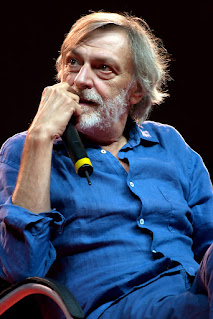Fiorenza Cossotto - operatic mezzo-soprano
Career overshadowed by story of ‘row’ with Maria Callas
Fiorenza Cossotto, a singer considered one of the greatest mezzo-sopranos of the 20th century, was born on this day in 1935 in Crescentino in Piedmont. Cossotto was hailed for her interpretations of the major mezzo and contralto roles from mid-19th-century Italian operas, particularly those of Giuseppe Verdi such as Aida, Il trovatore and Don Carlos, but also Gaetano Donizetti, Amilcare Ponchielli, Vincenzo Bellini and the other important composers of the day. Yet she is often remembered for a supposed spat with Maria Callas that led the Greek-American soprano to walk off the stage during her final performance at the Opéra in Paris of her signature role in Bellini’s Norma in 1965. The incident in question took place immediately after Callas, as Norma, and Cossotto, as Adalgisa, had joined in their duet ‘Mira, o Norma’. Callas, by that stage a little below her prime, was notoriously temperamental and within moments onlookers were imagining a row, theorising that Cossotto had tried to sabotage Callas’s performance by holding her own high notes longer and singing over Callas. Read more…
_______________________________________
Vittorio Jano - motor racing engineer
Genius behind the success of Alfa Romeo, Lancia and Ferrari
Born on this day in 1891, Vittorio Jano was among the greatest engine designers in motor racing history. Jano's engines powered cars for Fiat, Alfa Romeo, Lancia and Ferrari during a career that spanned four decades, winning numerous Grand Prix races. The legendary Argentinian Juan Manuel Fangio won the fourth of his five Formula One world championships in Jano's Lancia-Ferrari D50, in 1956. Almost 30 years earlier, Jano's Alfa Romeo P2 won the very first Grand Prix world championship in 1925, while its successor, the P3, scored a staggering 46 race wins between 1932 and 1935. He worked for Ferrari from the mid-50s onwards, where his greatest legacy was the V-8 Dino engine, which was the staple of Ferrari cars on the track and the road between 1966 and 2004. Jano's parents were from Hungary, but settled in Italy, where his father worked as a mechanical engineer in Turin. He was born in the small town of San Giorgio Canavese in Piedmont, about 35 kilometres north of Turin, and was originally called Viktor János. Following his father into engineering, he joined Fiat at the age of just 20. Read more…
_____________________________________
Alida Valli - actress
Scandal dogged star admired by Mussolini
The actress Alida Valli, who was once described by Benito Mussolini as the most beautiful woman in the world after Greta Garbo, died on this day in 2006 at the age of 84. One of the biggest stars in Italian cinema in the late 1930s and 40s, when she starred in numerous romantic dramas and comedies, she was best known outside Italy for playing Anna Schmidt, the actress girlfriend of Harry Lime in Carol Reed’s Oscar-winning 1949 classic The Third Man. She was cast in the role by the producer David O Selznick, who shared the Fascist leader’s appreciation for her looks, and who billed her simply as Valli, hoping it would create for her a Garboesque enigmatic allure. Later, however, she complained that having one name made her “feel silly”. Valli was born in Pola, Istria, then part of Italy (now Pula, Croatia), in 1921. She was christened Baroness Alida Maria Laura Altenburger von Marckenstein-Frauenberg, on account of a noble line to her paternal grandfather, Baron Luigi Altenburger, an Austrian-Italian from Trento and a descendant of the Counts d’Arco. Her father was a journalist and professor. The family moved to Como when she was young. Read more…

.jpg)

.jpg)



.jpg)
.jpeg)
.jpg)






